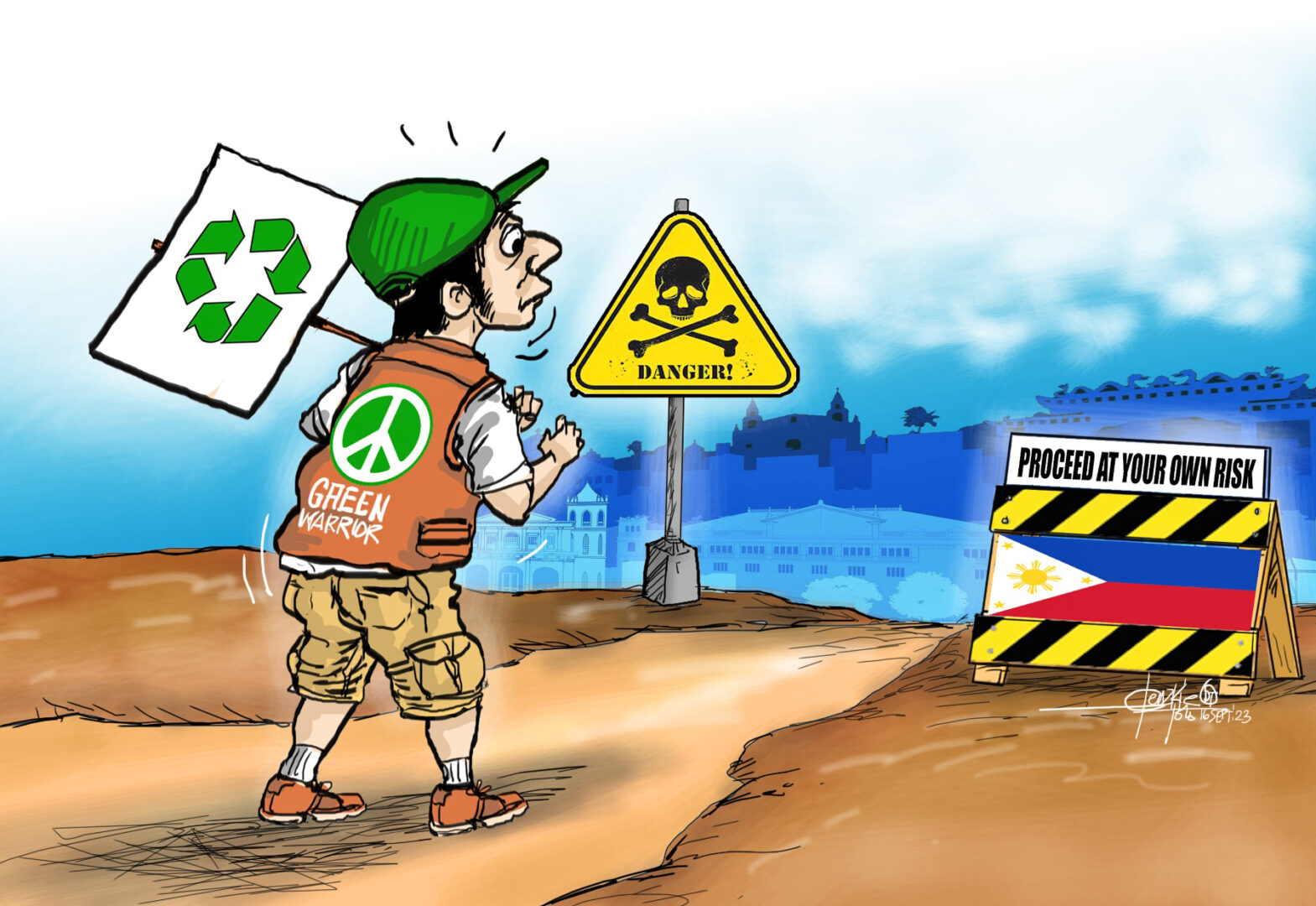Something critically disturbing seems to have been swept under the rug in the scramble to develop natural resources, secure much-needed foreign investments, and bridge the wealth gap among nations in the ASEAN region.
Based on the latest report by international NGO Global Witness, the Philippines, for the tenth straight year, remains one of the most dangerous places in the world for land and environmental defenders.
Through its fact-finding and systemic change methodology, the organization is known for its investigations that employ a variety of techniques, including undercover filming and analyses of open-source and leaked data sets.
In a data-driven investigation nothing short of epic in 2020, for instance, Global Witness was able to uncover massive illegal deforestation by major beef companies in Brazil.
Its work is reported annually. Its 2023 report, issued last 12 September, ranked the Philippines fifth among the “most dangerous countries in the world” for agents actively trying to protect the environment.
“The Philippines,” the Global Witness report said, “has consistently ranked as the worst place in Asia for land and environmental defenders, with 281 people killed since 2012. Of these, a third were linked to defenders speaking out against company operations linked to the mining sector.”
A matter of urgent concern for the organization is the criminalization of environmental defenders and rights advocates through “red-tagging” or the practice of accusing activists of being communists, a tactic commonly used to silence critics.
This, even as Global Witness saw hope in the alleviation of the situation in the Philippines with the enactment into law of a Human Rights Defenders Protection Bill which seeks to protect human rights defenders and the punishment of acts of intimidation or violence against them.
Still, the organization feels some trepidation over the announcement of President Ferdinand Marcos Jr. that he considers the exploration and extraction of mineral resources essential to his administration’s economic plan to shift towards green technology and renewable energy.
Southeast Asia is already a top global producer of nickel and copper which are vital components in green technologies such as E-vehicles. Along with Vietnam and Indonesia, the Philippines holds untapped mineral reserves crucial for green technologies.
The fear is that, as demand outstrips supply, governments and companies in the region might make moves to take advantage of “new frontiers of opportunity” in mining, without cleaning up problems occurring at the root of the supply chain.
One case in the Philippines that had come under Global Witness’s investigative lens involved the attempt by Altai Philippines Mining Corp., or APMC, to operate a mining project on Sibuyan Island, also referred to as the “Galapagos of Asia.”
APMC has alleged links to Kenneth Gatchalian of the wealthy and politically-influential Gatchalian family.
Through a mineral ore permit that it holds, APMC intends to mine and export over 50,000 metric tons of nickel ore from Sibuyan, which has an 80-percent forest cover and is home to various endangered species.
For almost two decades, local folk on Sibuyan prevented mining exploration on their island. Then suddenly, riot police came to the island. Sibuyan folk firmly resisted APMC’s operations, even as acts of intimidation and harassment were perpetrated by authorities against the locals, particularly their leaders, including Rodne Galicha, head of the environmental group Living Laudato Si.
However, the people of Sibuyan won — at least for now — against APMC, with the government ordering the latter to suspend its operations in February 2023 due to environmental regulation violations.
In June 2023, the Supreme Court issued a writ of kalikasan, a legal remedy for the protection of the right to a healthy environment, against pertinent agencies and APMC, and the government ordered APMC’s operations closed.
Looking back at their struggle to protect Sibuyan from mining exploitation, Galachia says: “It’s not only about the output or the product, but the whole value chain, and the context of where you get your minerals. Is it just? Did it affect the lives of people? Were endangered species of flora and fauna and some other (species) yet to be discovered affected or impacted?”
As for the government, it behooves the current administration to take assiduous care that as it reaches out to the world, asking those holding global wealth to participate in the country’s efforts at nation-building, it should be prepared to answer foreign investors’ queries honestly: What kind of country are we putting our money in?
